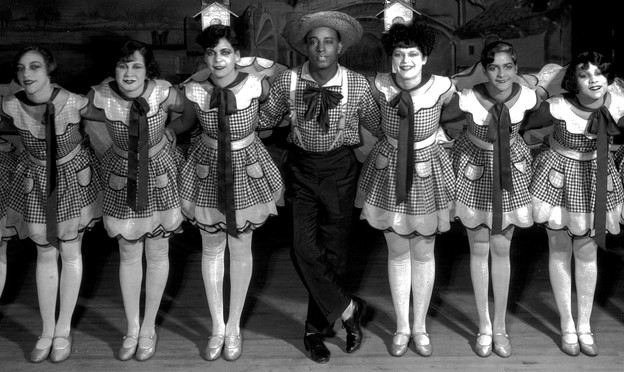The Exile (1931)
Oscar Micheaux's "The Exile"
Oscar Micheaux is commonly referred to as the Father of Black Cinema. After the advent of sound at the end of the 1920s, filmmakers began to slowly transition to integrating sound in their films. With his 1931 film, "The Exile," Micheaux created the first ever sound film made by and for black audiences. The film was marketed as a 'mighty epic of modern Negro life."
The film centers on a man named Jean Baptiste who is to marry Edith Duval. Edith has obtained great power in the African-American community after she comes into possession of a Chicago mansion where she was once a servant. Baptiste rejects Edith after he discovers her plans of converting the house into a nightclub. He moves to South Dakota, where he becomes a rancher. Five years later, he falls in love with Agnes, a white woman. Despite their love, he leaves to avoid getting her into trouble. Once back in Chicago, he reunites with Edith. Edith then is murdered by an old flame. Baptiste is suspected of being the murderer until his name is cleared. Agnes eventually finds Baptiste and lets him know of her half-black heritage, allowing them to marry without scrutiny.
Despite Baptiste being the titular 'exile' of the film (he was given that name due to his departure to South Dakota), each character in the film seems to be an exile in their own way. None of the characters can truly be with one another due to their differing opinions, manipulations, or racial divides. Micheaux weaves a story of characters who can never truly connect with anyone due to various differences.
Micheaux takes advantage of the new advent of sound by having musical dance asides. The speakeasy that Edith operates has musical entertainment, ranging from singers, bands, and dancers. Micheaux spends considerable time with these musical asides to showcase the entertaining value of sound in the film medium.
Many considered this film to be lackluster in its original release, both critically and commercially. However, many film historians mark the film as incredibly noteworthy. Film historian Richard Koszarski writes, "Although some critics later described 'The Exile' 'a disaster,' its technical quality is certainly no worse than "Mother's Boy (1929)" and "Howdy Broadway (1929)," or other low-budget eastern productions of the period. Indeed, Micheaux's sober analysis of racial distinction with and without the black community marks 'The Exile' as far more ambitious and interesting than most other independent films of the day. 'The Exile' was a highly personal statement that Micheaux dramatized as stock melodrama, a very difficult project to pull off in the 1930s If the film was the critical and commercial failure some historians suggest, then its fate may be seen as prefiguring the negative response to D.W. Griffith's 'The Struggle (1931),' shot in the Bronx a few months later."




Comments
Post a Comment